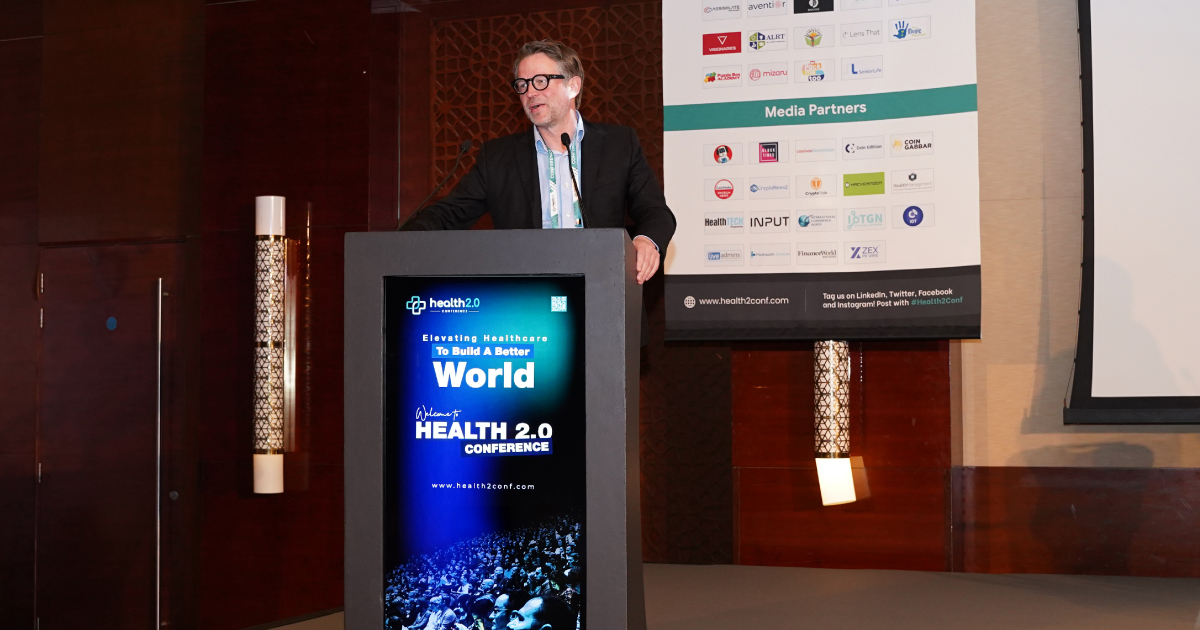Posted on : April 17, 2023

When it comes to seeking health aid, people have access to a variety of medical disciplines, organizations, and techniques. In today’s scenario, it is possible to switch between natural cures, scientifically proven treatments, spiritual healing, and other options to cure a disease. Such medical pluralism has become a boon to modern civilization.
The science of medical anthropology is built around the idea of medical plurality. The concept of Pluralistic Health Systems is rapidly gaining momentum in the healthcare sector. With the advent of technology and the increasing demand for personalized care, traditional healthcare models are being challenged. To counter a multifaceted demand, Pluralistic health systems have risen. This approach not only offers patients a more holistic and individualized approach to healthcare but also has the potential to improve health outcomes and reduce costs. But it comes with its share of challenges.
The topic of Pluralistic Health Systems in 2023 is a rather debated one, with many healthcare professionals, researchers, and policymakers actively discussing it in large-scale healthcare conferences in Vegas, such as the Health 2.0 Conference. This article explores the concept of Pluralistic Health Systems in-depth, including its benefits, challenges, and implications for the healthcare industry.
What Is A Pluralistic Health System?
A pluralistic health system is one in which a variety of diverse providers, services, and organizations coexist and communicate with one another in order to provide healthcare to a population. For example, mixing biomedicine with 'traditional' medicine or 'alternative' medicine to cure specific diseases.
Traditional healers, community health workers, and other non-traditional healthcare professionals are frequently included in these systems, along with both public and commercial healthcare providers. Numerous nations have pluralistic health systems, which are rapidly elevating them to the forefront of conversation at upcoming healthcare events.
Which Countries Have A Pluralistic Health System Today?
Many countries around the world have a pluralistic health system. Some examples of countries with a pluralistic health system include Canada, the United Kingdom, Australia, India, Brazil, and China. Top healthcare conferences agree that there are some similarities in how these systems operate, each country's healthcare system is unique and reflects its own cultural, political, and economic context.
The concept of pluralistic healthcare originated way back. Over time, doctors and patients tried to reshape conventional medicine via the concepts of modernism, science, and technological advancement in many regions of the world, particularly in postcolonial nations battling colonialism's cultural and political legacy. In response to the demands and expectations of patients, governmental regulations, and other players, medical professionals began using both contemporary and traditional philosophies and practices. Eventually, this combination of approaches was adopted in several countries, including the USA.
Greater Healthcare Access And Versatility
 Upcoming healthcare events, like the Health 2.0 Conference, will discuss the advantages of a pluralistic healthcare system in detail and from varied perspectives. Patients have more alternatives for healthcare services, including a wider range of healthcare providers, venues, and assistance. When many healthcare providers are working concurrently, patients have the liberty to choose what medical aid they require and in what form. Patients who live in rural or isolated places and may not have easy access to healthcare services may find this to be of particular importance.
Upcoming healthcare events, like the Health 2.0 Conference, will discuss the advantages of a pluralistic healthcare system in detail and from varied perspectives. Patients have more alternatives for healthcare services, including a wider range of healthcare providers, venues, and assistance. When many healthcare providers are working concurrently, patients have the liberty to choose what medical aid they require and in what form. Patients who live in rural or isolated places and may not have easy access to healthcare services may find this to be of particular importance.
Patients have more options in a pluralistic health system. Patients have a variety of healthcare options to select from, including public, private, and not-for-profit services. Patients may then be able to select service providers based on their requirements, preferences, and financial constraints.
Pluralistic Health Systems And Innovation In Medicare
A diverse healthcare system might encourage innovation and competition among healthcare providers. This, in turn, improves the quality and effectiveness of healthcare services among healthcare providers for patients. Additionally, healthcare providers could innovate to set themselves apart from rivals and draw in clients. Services like alternative medicine, supplementary medicine, or specialized services may be provided by various healthcare professionals. Patients could have access to more services than they would under a healthcare system that is more uniform.
Public Versus Private Alliances In Pluralistic Healthcare
Public-private collaborations in healthcare can also be made possible by a pluralistic health system. In order to increase access to healthcare services or to pool resources and expertise, public healthcare providers could collaborate with private healthcare providers. Better patient outcomes can be achieved through these collaborations by combining the skills of public and private healthcare providers.
If these advantages are used in the right direction, a pluralistic health system may provide communities all over the world with a sustainable and efficient healthcare solution.
Does A Pluralistic Healthcare System Pose Challenges?
It's true that a healthcare system that is flexible in terms of its assistance would naturally have benefits for its users. When a therapeutic "failure" occurs, such as when symptoms intensify or continue despite therapy, patients can easily switch modalities. However, research suggests that medical diversity from pluralistic healthcare systems has been identified as a major cause of inadequate health outcomes. For instance, studies have indicated that using traditional medicine prevents people living with HIV (PLHIV) from starting their ART or receiving HIV treatment. Let’s understand additional challenges in pluralistic healthcare systems, their underlying causes, and ways to overcome them, as shared by major healthcare conferences around the world.
-
Coordination and Integration
There is a chance of service fragmentation and duplication when many healthcare professionals are working simultaneously. Patients may become confused and medical aid may become inefficient as a result. Establishing clear communication channels and processes for collaboration and coordination among healthcare practitioners is crucial to overcoming this obstacle.
-
Quality Control
Ensuring quality control among all healthcare professionals is a difficulty in a pluralistic healthcare system. There is a chance that the standard of healthcare services will vary when there are several independent providers. It is crucial to create healthcare quality standards and oversight systems to make sure that all healthcare providers adhere to them in order to solve this difficulty.
-
Cost and Affordability
Cost and accessibility issues with a diverse healthcare system are quite common. Lower-income consumers may have limited access to healthcare since private healthcare providers may demand more costs than public ones. It is critical to address this issue by establishing measures to manage healthcare expenses and improve affordability, such as patient subsidies for low-income persons or charge caps. Upcoming healthcare events and conferences tend to focus on solutions to these problems.
What Are the Challenges of a Pluralistic Health System?
There are various healthcare conferences in Vegas that present techniques and approaches for addressing these difficulties and improving patient outcomes in 2023.
No matter which healthcare practitioner a patient sees, standardized healthcare procedures and quality control measures may guarantee that they receive consistent, high-quality treatment. Standardization can also aid in lowering discrimination in medical procedures and enhancing medical results.
In a pluralistic health system, healthcare information technology may significantly enhance coordination, communication, and care quality. Telemedicine, electronic health records (EHRs), and other digital health systems can help medical professionals exchange information, interact, and coordinate care more efficiently.
Patients can benefit from safe and effective care if healthcare professionals are properly regulated and overseen. This can include rules governing accreditation and licensing as well as the oversight and enforcement of quality standards.
Role Of Health 2.0 Conference In Confounding These Challenges
The highly anticipated Health 2.0 Conference in Vegas and Dubai brings together healthcare experts, business owners, financiers, and medical professionals to discuss the newest developments in healthcare technology. There are many events that educate individuals about potential health advancements and trends but none like this healthcare conference, which is expected to be 2023’s greatest medical expert gathering. So, if you are a health enthusiast looking for valuable exposure, and expert insights into the field of healthcare and medicine, this is just the spot for you!
Conclusion
With added benefits and some challenges, pluralistic health systems do make a worth of difference in the way patients are handled. It not only enhances the potential and business prospects of medical institutions, but it also gives us faith in the system; which is only made stronger by pluralism at its core. In the future, more and more countries are expected to adopt this concept in their practice. They will all collaborate to eradicate the potential challenges in pluralistic healthcare in particular and healthcare services in general.
In an era of rapid global advancements, the best way to capture these changes in the medical sector is by collaborating with healthcare conferences that seek to spread awareness about medical issues. By doing so, one can not only learn from the experts in the field but also ensure that they are well aware of the facts and figures that surround us today. This way, we can all use the best of services to our advantage and stay healthy and protected.











